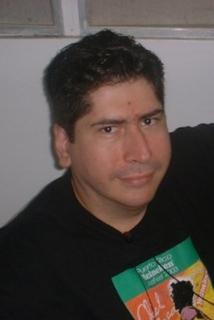Congress, colonialism: Confronting a conundrum

Congress, colonialism: Confronting a conundrum
Pedro Rossello Special to the Sentinel Posted November 14, 2006
A lame-duck Congress has begun to limp back into Washington. Among its members, both the vindicated and the vanquished are acutely aware that the voters are restless; that they want meaningful action on thorny issues that their representatives and senators have repeatedly been unwilling or unable to address.On Wednesday, a Senate committee will conduct a hearing on one such issue: namely, the conundrum posed by 108 years of federal disenfranchisement imposed upon U.S. citizens residing in Puerto Rico.
A lame-duck Congress has begun to limp back into Washington. Among its members, both the vindicated and the vanquished are acutely aware that the voters are restless; that they want meaningful action on thorny issues that their representatives and senators have repeatedly been unwilling or unable to address.On Wednesday, a Senate committee will conduct a hearing on one such issue: namely, the conundrum posed by 108 years of federal disenfranchisement imposed upon U.S. citizens residing in Puerto Rico.
That protracted denial of a fundamental civil right cannot be dismissed as some back-burner brouhaha percolating on a remote Caribbean island. Why? Because this unfinished business of American democracy directly affects the destiny of nearly 4,000,000 American citizens -- a figure that exceeds the populations of close to half of the 50 states.With the single specific exception of the nation's capital, the Constitution countenances only two types of U.S. political jurisdiction: One is states; the other is territories. Puerto Rico is a territory; and in territories, federal voting rights are nonexistent.
During the late 18th century, propelled by an unquenchable thirst for justice, the peoples of 13 colonies endured immense hardship and terrible sacrifice in order to free themselves from the stifling bonds of imperialism. Then, ironically, a dozen decades later, the very nation they created found itself assuming the mantle of empire.As a consequence of the Spanish-American War, literally thousands of far-flung islands fell under the domain of the Stars and Stripes. This freshly acquired territory prompted a paradigm shift.From 1898 on, with the acquiescence of a bitterly divided Supreme Court, the executive and legislative branches of the federal government began to practice a kind of apartheid: for the inhabitants of these former Spanish colonies, inoperative would be a long-standing tradition to the effect that territorial status should logically be a prelude to U.S. statehood. Instead, it was decided that Uncle Sam would rule indefinitely over those possessions -- and that the Constitution's full panoply of rights would indefinitely be denied to their inhabitants.That same approach has been applied to every territory acquired after 1898. U.S. Appeals Court Judge Juan Torruella has eloquently condemned this imperial paradigm as "the doctrine of separate and unequal."
Today, statehood has been granted to each and every U.S. territory -- except to those acquired after the Spanish-American War. This stark dichotomy is no coincidence.Last December, the George W. Bush White House buttressed the findings of previous administrations (both Democratic and Republican) by forthrightly confronting that dichotomy: A "President's Task Force on Puerto Rico's Status" urged Congress to facilitate decisive action. In its report, the task force correctly affirmed that the sole alternatives to territorial status for Puerto Rico are separate sovereignty as a discrete country and shared sovereignty as a fully integrated component of the United States.In response to the White House panel's recommendations, bipartisan bills are now pending in the House and Senate.
The ball is thus situated in precisely the proper court, given that the U.S. Constitution unequivocally stipulates, "The Congress shall have power to dispose of and make all needful rules and regulations respecting the territory or other property belonging to the United States."By initiating the deliberative process proposed by the task force, Congress will not only discharge a constitutional obligation but will emphatically reiterate the American people's commitment to achieving an ever more perfect union.
President Bush himself said it best. In his second inaugural address, he delivered this inspiring message: "America has need of idealism and courage, because we have essential work at home -- the unfinished work of American freedom. In a world moving toward liberty, we are determined to show the meaning and promise of liberty."May Capitol Hill heed that clarion call.Pedro Rossello, a pediatric surgeon, was Governor of Puerto Rico from 1993 until 2001 and is now a member of the Puerto Rico Senate. He wrote this commentary for the Orlando Sentinel.
President Bush himself said it best. In his second inaugural address, he delivered this inspiring message: "America has need of idealism and courage, because we have essential work at home -- the unfinished work of American freedom. In a world moving toward liberty, we are determined to show the meaning and promise of liberty."May Capitol Hill heed that clarion call.Pedro Rossello, a pediatric surgeon, was Governor of Puerto Rico from 1993 until 2001 and is now a member of the Puerto Rico Senate. He wrote this commentary for the Orlando Sentinel.



0 Comments:
Publicar un comentario
<< Home